
Tutuila Island: The Heart of American Samoa
Tutuila Island, the largest island in American Samoa, is a tropical paradise rich in natural beauty and cultural heritage. This stunning destination boasts lush rainforests, pristine beaches, and striking volcanic landscapes, offering a perfect blend of adventure and relaxation for tourists. The island's main town, Pago Pago, provides a unique blend of modern amenities and traditional Samoan culture, making it an excellent base for exploring the island's many attractions. One of the highlights of Tutuila Island is the National Park of American Samoa, where visitors can hike through verdant trails, marvel at cascading waterfalls, and encounter diverse wildlife such as fruit bats and vibrant bird species. The park also offers opportunities to learn about Samoan traditions and customs through cultural demonstrations and village tours. For those looking to unwind, the island's numerous beaches, such as Two Dollar Beach and Alega Beach, offer crystal-clear waters perfect for swimming, snorkeling, and simply soaking in the sun. The warm, welcoming nature of the local Samoan people adds to the island's charm, making every visitor feel at home in this Pacific paradise.
Local tips in Tutuila Island
- Bring reef-safe sunscreen to protect the coral reefs while enjoying the beaches.
- Respect local customs by dressing modestly, especially in villages.
- Visit the National Park early in the morning to avoid the midday heat.
- Try local dishes like palusami and oka for an authentic Samoan culinary experience.
- Rent a car to explore the island at your own pace as public transport options are limited.
Tutuila Island: The Heart of American Samoa
Tutuila Island, the largest island in American Samoa, is a tropical paradise rich in natural beauty and cultural heritage. This stunning destination boasts lush rainforests, pristine beaches, and striking volcanic landscapes, offering a perfect blend of adventure and relaxation for tourists. The island's main town, Pago Pago, provides a unique blend of modern amenities and traditional Samoan culture, making it an excellent base for exploring the island's many attractions. One of the highlights of Tutuila Island is the National Park of American Samoa, where visitors can hike through verdant trails, marvel at cascading waterfalls, and encounter diverse wildlife such as fruit bats and vibrant bird species. The park also offers opportunities to learn about Samoan traditions and customs through cultural demonstrations and village tours. For those looking to unwind, the island's numerous beaches, such as Two Dollar Beach and Alega Beach, offer crystal-clear waters perfect for swimming, snorkeling, and simply soaking in the sun. The warm, welcoming nature of the local Samoan people adds to the island's charm, making every visitor feel at home in this Pacific paradise.
When is the best time to go to Tutuila Island?
Iconic landmarks you can’t miss
National Park of American Samoa
Explore rainforests, coral reefs, and Samoan culture in America's only national park south of the equator.
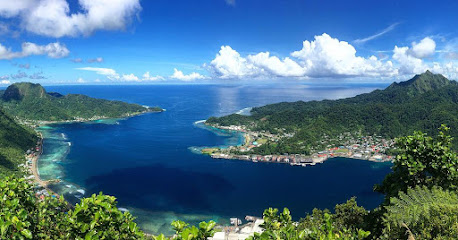
Jean P Haydon Museum
Explore American Samoa's vibrant culture and history at the Jean P. Haydon Museum in Fagatogo. Discover artifacts, traditions, and untold stories.
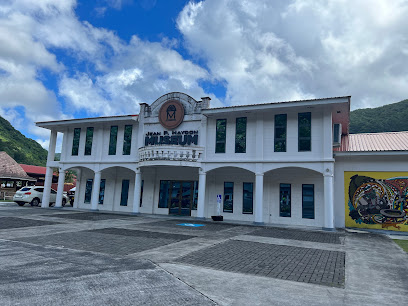
Blunts Point Battery
Explore Blunts Point Battery in American Samoa: A historic WWII site with panoramic views and rich military heritage on Matautu Ridge.
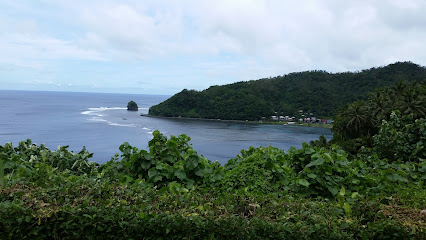
Vai'ava Strait National Natural Landmark
Discover dramatic cliffs, lush rainforests, and vibrant marine life at this iconic American Samoa landmark.
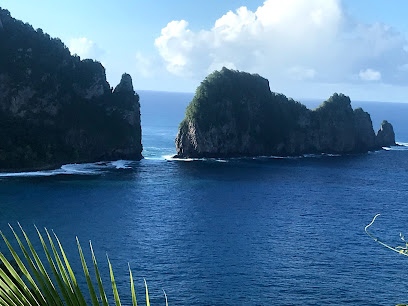
Turtle and Shark
Explore the breathtaking beauty of Turtle and Shark in Vaitogi, a scenic spot perfect for nature lovers and adventure enthusiasts.
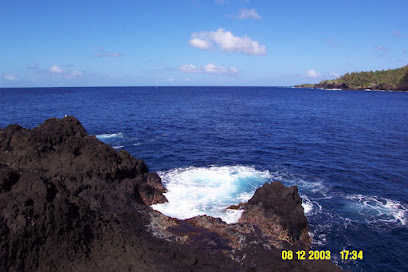
Fogamaa Crater National Natural Landmark
Discover a hidden gem in American Samoa: hike through a lush volcanic crater with stunning views and unique geological significance.
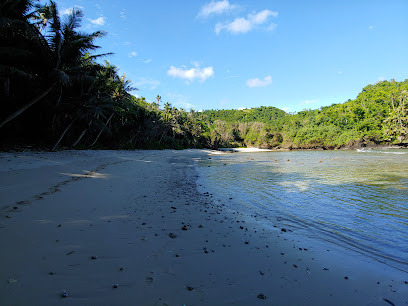
Blunts Point Trail
Hike to historic WWII gun batteries on Blunts Point Trail for stunning views of Pago Pago Harbor and a glimpse into American Samoa's past.
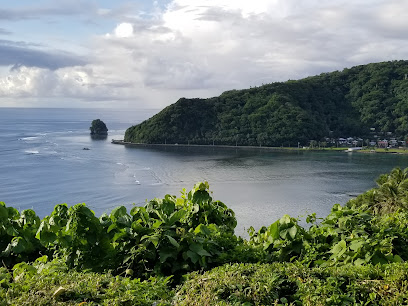
Tia Seu Lupe
Explore ancient Samoan traditions at Tia Seu Lupe, a historical site featuring restored star mounds used for the sport of pigeon catching.

Fagatele Marine Sanctuary
Explore Fagatele Bay National Marine Sanctuary: Dive into a vibrant underwater world in American Samoa's volcanic paradise.
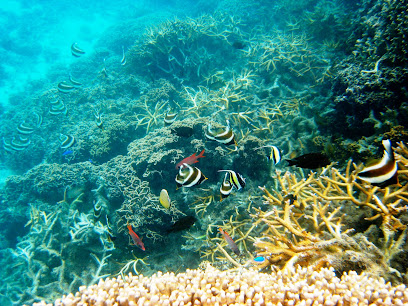
Fatu Rock
Discover Fatu Rock (Flowerpot Rock) in American Samoa: a legendary islet marking Pago Pago Harbor with natural beauty and cultural significance.
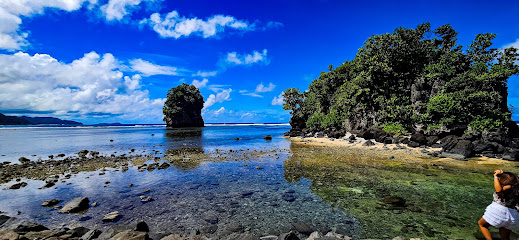
Essential places to dine
McDonald's
Experience fast food comfort at McDonald's Tafuna - where global flavors meet local hospitality.
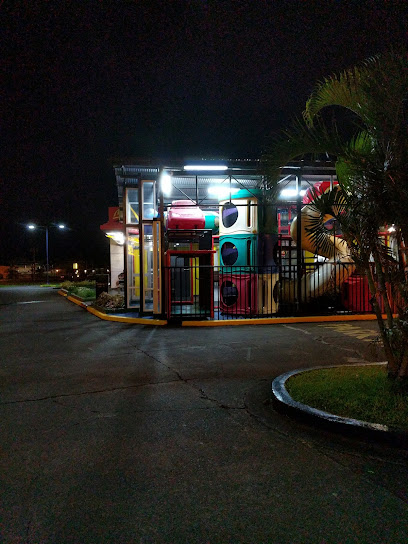
Tisa's Barefoot Bar
Experience island dining at Tisa's Barefoot Bar – where delicious local flavors meet stunning ocean views.
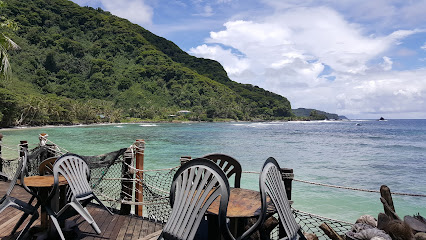
The Koko Bean Cafe
Experience authentic Samoan flavors at The Koko Bean Cafe in Nu'uuli - where every meal is a celebration of island life.
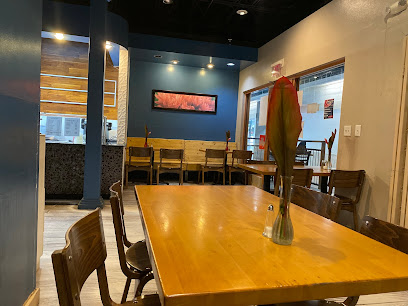
Carl's Jr.
Savor classic American fast food delights at Carl's Jr. in Pago Pago - perfect for tourists seeking quick and tasty meals.
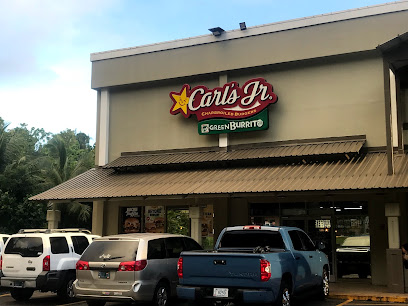
Cecilias Restaurant & Bar
Discover authentic flavors at Cecilia's Restaurant & Bar in Pago Pago—where local ingredients meet culinary creativity.
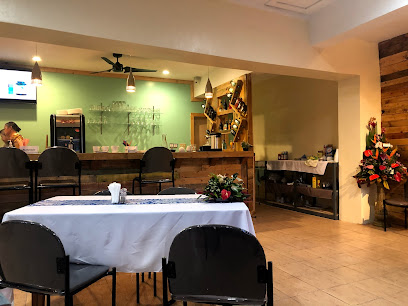
Milovales Burgers and Fish & Chips
Discover delicious burgers and fish & chips at Milovales - a cherished fast-food destination in Nu'uuli offering authentic flavors.
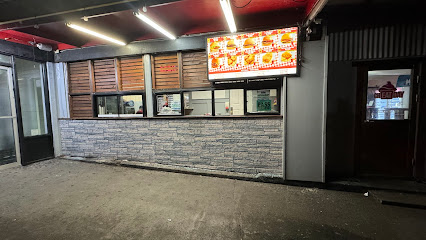
Tropical Chicken and Pizza
Discover Tropical Chicken and Pizza in Pago Pago – where island flavors meet comfort food bliss!
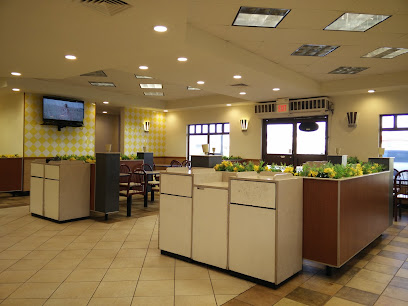
Oasis
Experience authentic Korean cuisine at Oasis in Tafuna - where tradition meets flavor in every dish.
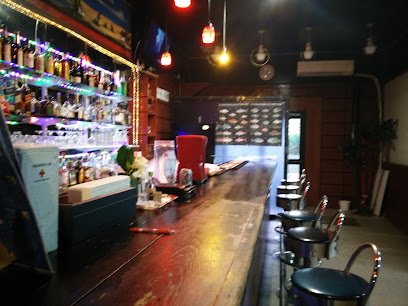
T J D - Pho Vietnamese Restaurant
Experience authentic Vietnamese cuisine at T J D - Pho Restaurant in Malaeimi, where every dish tells a story of tradition and flavor.
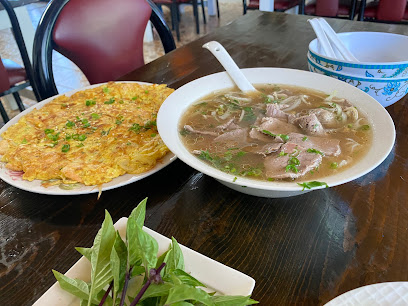
Manuia Restaurant
Experience authentic Korean cuisine at Manuia Restaurant in Tafuna - where every dish tells a story.
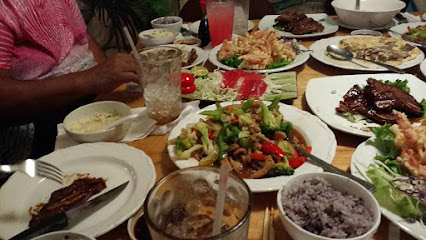
Nina’s Restaurant
Experience authentic flavors at Nina’s Restaurant in Tafuna—where local cuisine meets warm hospitality.
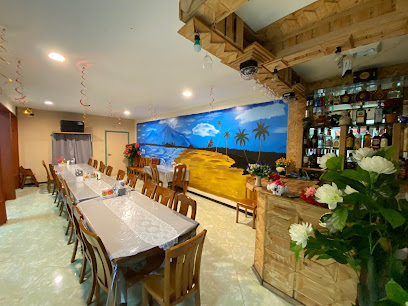
Mama's Kitchen
Experience the heart of Samoan cuisine at Mama's Kitchen in Nu'uuli – where tradition meets flavor in every dish.
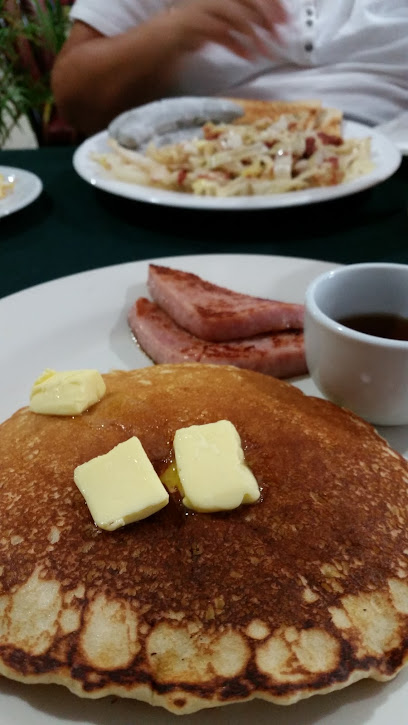
A&E Cafe
Discover authentic Samoan cuisine at A&E Cafe in Tafuna – a local favorite with delicious dishes and a warm atmosphere.
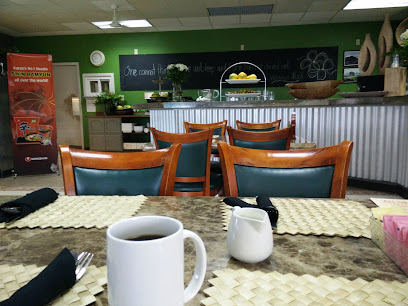
Emelio's Restaurant
Experience authentic Samoan cuisine at Emilio's Restaurant in Pago Pago – where every meal tells a story of tradition and flavor.
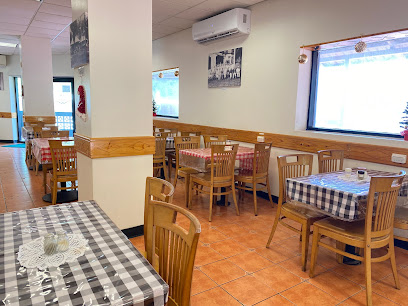
Moon Korean Restaurant
Discover the authentic taste of Korea at Moon Korean Restaurant in Leloaloa - a must-visit culinary destination for every traveler.
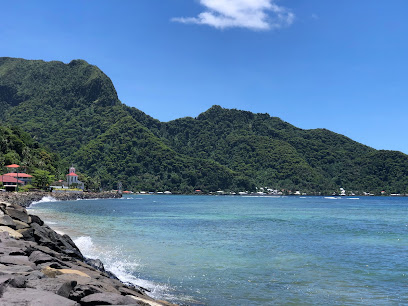
Markets, malls and hidden boutiques
Laufou Shopping Center
Explore the vibrant Laufou Shopping Center in Nu'uuli, offering a mix of local culture, shopping, and dining experiences for every traveler.
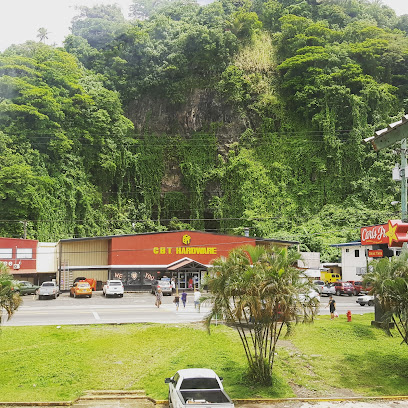
Cost.U.Less
Explore local flavors and global goods at Cost.U.Less, Pago Pago's premier grocery destination for tourists and locals alike.
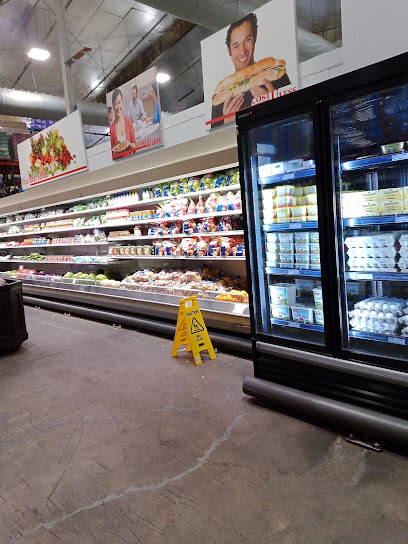
Manu'a Store
Discover unique home goods and local crafts at Manu'a Store in Nu'uuli, a prime shopping destination for tourists seeking authentic souvenirs.
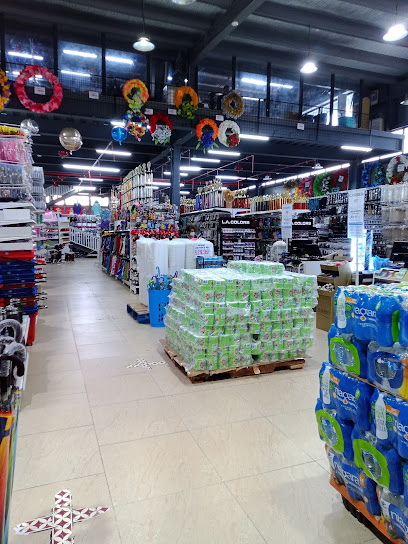
KT Mart
Explore KT Mart in Nu'uuli for a diverse selection of clothing and accessories reflecting the vibrant culture of Samoa.
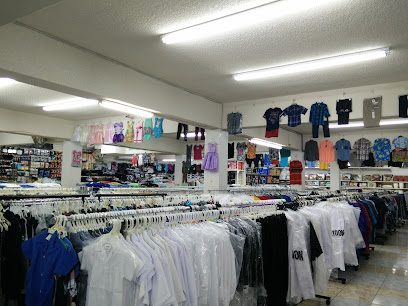
Tropik Traders
Discover the vibrant essence of island fashion at Tropik Traders, where unique clothing and accessories await every traveler.
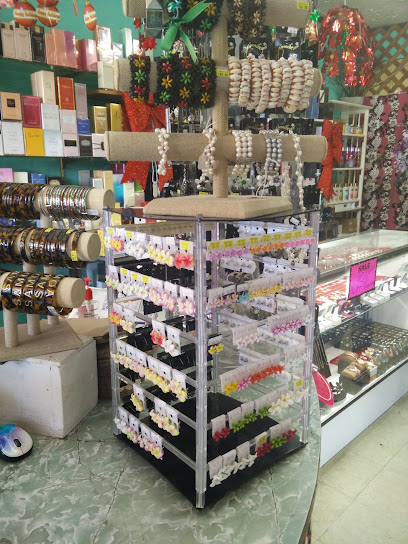
GCC Store
Explore diverse local and international products at GCC Store in Ili'ili, Western District, your one-stop supermarket for essentials and unique flavors.
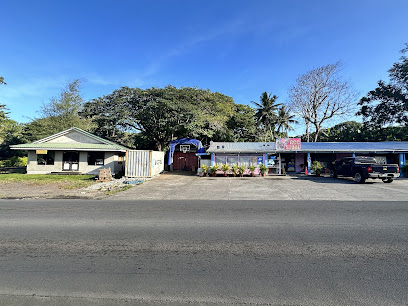
Island Image Creations
Discover the vibrant world of sewing at Island Image Creations in Nu'uuli, where unique fabrics and local craftsmanship await every visitor.
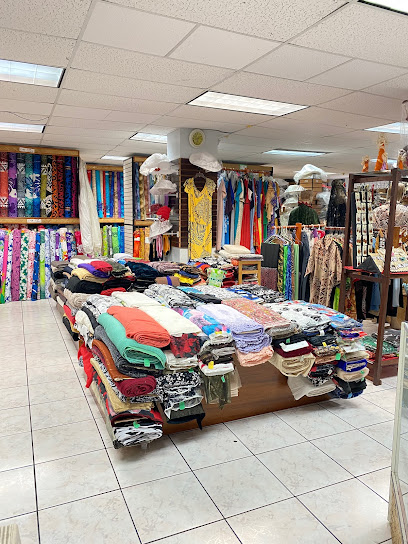
Tedi Of Samoa
Explore Tedi Of Samoa: Your gateway to vibrant local shopping and unique Samoan treasures in Fagatogo.

Pacific Mini Mart
Experience local flavors and convenience at Pacific Mini Mart, your go-to grocery store in Tafuna, American Samoa.
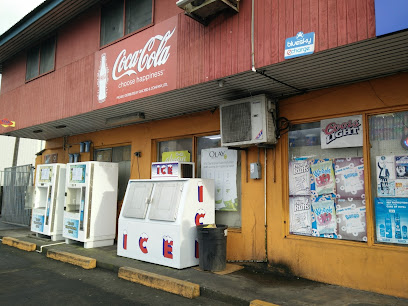
KOKOLAND STORE
Explore Kokoland Store in Tafuna, the local supermarket offering a delightful mix of local and imported products for travelers seeking convenience and culture.
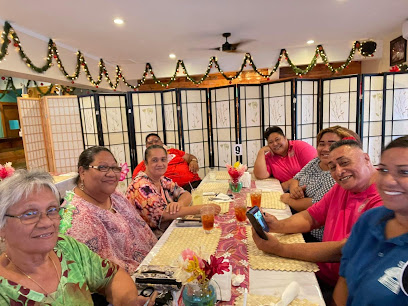
Amy's Gifts Shop
Explore Amy's Gifts Shop in Aua for unique handcrafted souvenirs and local art that celebrate the beauty of the Eastern District.
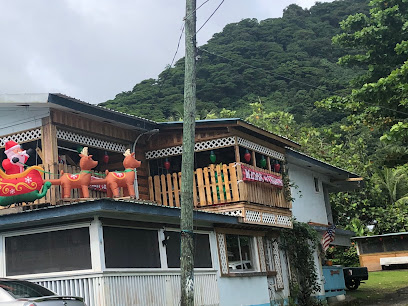
Tutuila Store
Discover Tutuila Store in Leloaloa, your one-stop convenience shop for local products and essentials while exploring the beauty of Samoa.

O&O Inc.
Explore O&O Inc. in Nu'uuli for unique clothing finds and tasty snacks, perfect for all ages and styles in the heart of the Eastern District.
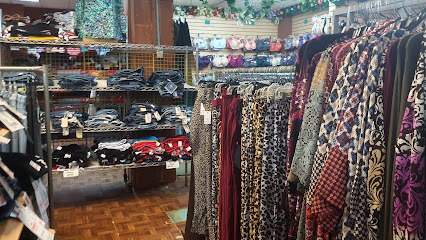
MU INC
Discover the vibrant culture of American Samoa at MU INC, a unique shopping destination in Faga'alu offering traditional crafts and local treasures.
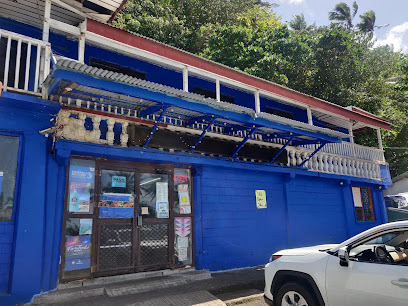
California Mart
Experience the charm of California Mart, your go-to convenience store in Malaeloa for local snacks and essentials during your Western District adventure.
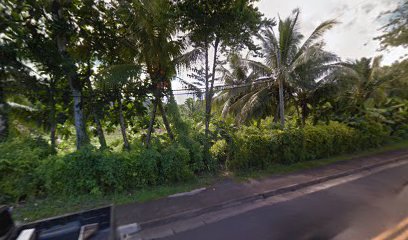
Essential bars & hidden hideouts
Tisa's Barefoot Bar
Discover Tisa's Barefoot Bar, a beachfront delight where fresh seafood meets stunning views and laid-back island vibes.
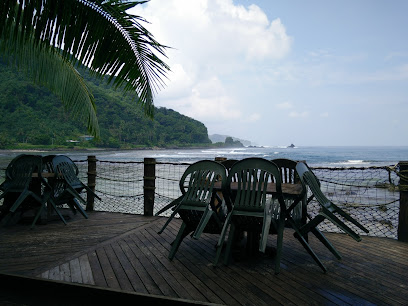
DDW Restaurant
Experience the flavors of Utulei at DDW Restaurant, where fresh local ingredients meet breathtaking beach views.
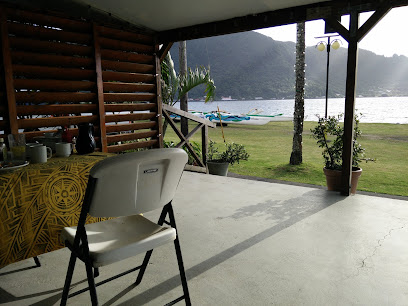
The Koko Bean Cafe
Discover the vibrant flavors and warm hospitality of The Koko Bean Cafe, a must-visit spot for coffee lovers in Nu'uuli.
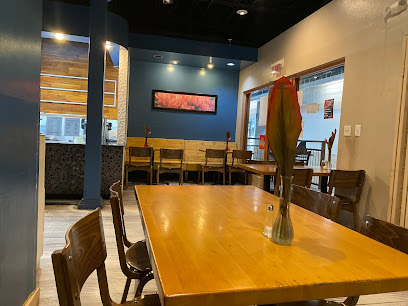
Cecilias Restaurant & Bar
Experience the vibrant flavors of Pago Pago at Cecilia's Restaurant & Bar, where local culture meets culinary excellence in an inviting atmosphere.
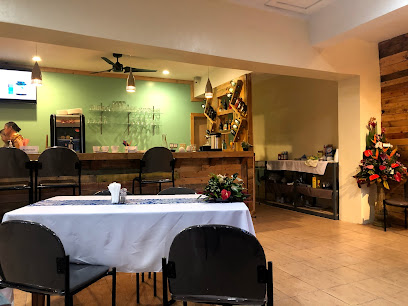
Paradise Pizza
Discover the delightful tastes of Paradise Pizza, where every slice is crafted with fresh ingredients and served in a vibrant atmosphere.
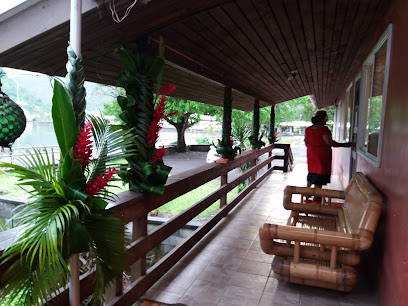
Milovales Burgers and Fish & Chips
Experience the delicious fusion of classic fast food and local flavors at Milovales Burgers and Fish & Chips in Nu'uuli.
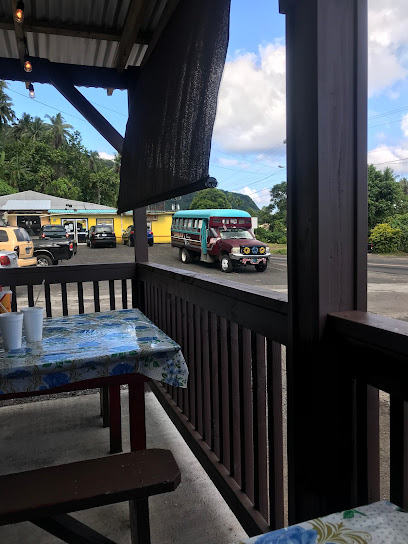
Oasis
Experience authentic Korean cuisine at Oasis in Tafuna, where every dish is a celebration of flavors and culture, perfect for tourists seeking unique dining.
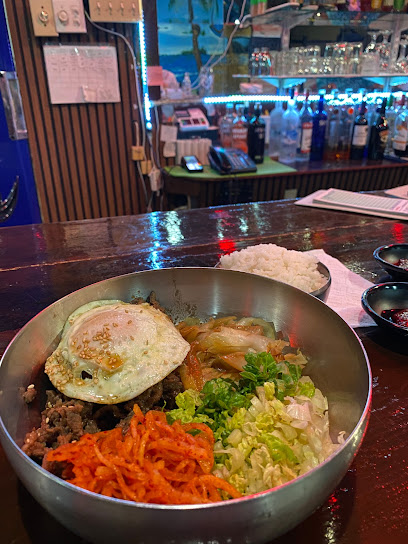
Flying Fox Gastropub
Experience the vibrant culinary scene at Flying Fox Gastropub in Pago Pago, where local flavors meet global inspirations in a lively atmosphere.
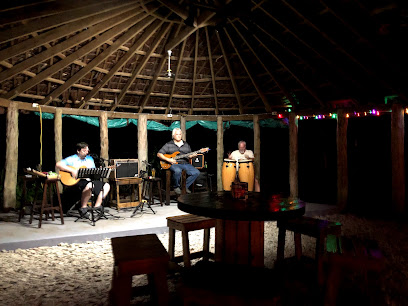
Paradise Bar & Grill
Discover the vibrant flavors and lively atmosphere at Paradise Bar & Grill in Nu'uuli, the perfect spot for relaxation and good company.
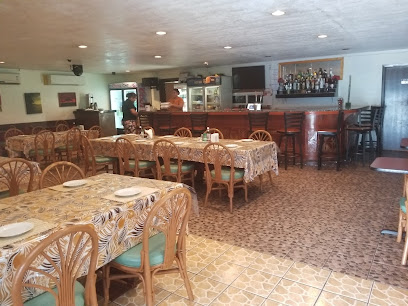
Manuia Restaurant
Experience authentic Korean cuisine in the heart of Tafuna, where every dish tells a story of tradition and flavor.
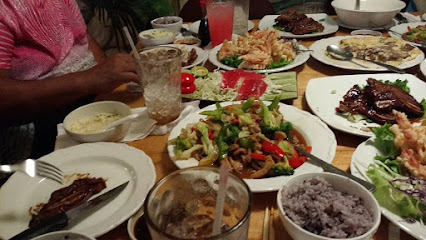
A&E Cafe
Discover the authentic flavors of Tafuna at A&E Cafe, a cozy spot for delicious local cuisine and friendly service.
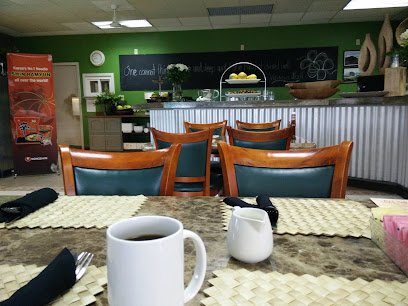
Goat Island Cafe
Experience the flavors of Utulei at Goat Island Cafe, where local cuisine meets breathtaking ocean views in a warm and inviting atmosphere.
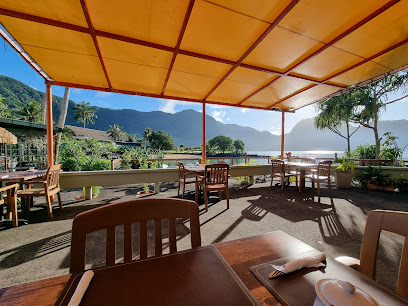
Emelio's Restaurant
Experience authentic American Samoan cuisine at Emelio's Restaurant in Pago Pago, where local flavors and warm hospitality await every visitor.
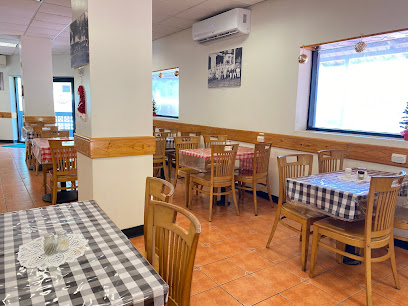
Famous Seafood Restaurant
Discover the flavors of the ocean at Famous Seafood Restaurant in Tafuna, where fresh catches and local culture come together in a delightful dining experience.
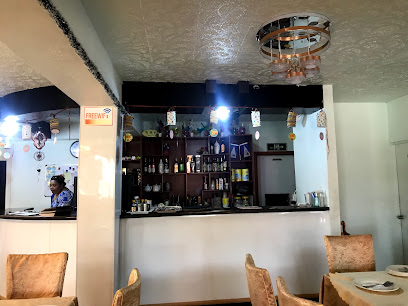
Local Phrases about Tutuila Island
-
- HelloTalofa
[Tah-loh-fah] - GoodbyeFa
[Fah] - YesIoe
[Ee-oh-eh] - NoLeai
[Leh-ai] - Please/You're welcomeFa'amalie
[Fah-ah-mah-lee-eh] - Thank youFa'afetai
[Fah-ah-feh-tah-ee] - Excuse me/SorryTulou
[Too-loh-oo] - How are you?Ua mai oe?
[Oo-ah my oh-eh] - Fine. And you?Lelei. O a ou te oe?
[Leh-leh-ee Oh ah oh-oo teh oh-eh] - Do you speak English?E te le tautala i le fa'ainglisi?
[Eh teh leh tow-tah-lah ee leh fah-ah-een-glee-see] - I don't understandO le a le mafai ona ou te malamalama
[Oh leh ah leh mah-fai oh-nah oh teh mah-lah-mah-lah-mah]
- HelloTalofa
-
- I'd like to see the menu, pleaseFa'amalie, ou te fia va'ai i le mea'ai
[Fah-ah-mah-lee oh teh fee-ah vah-ah-ee ee leh meh-ah-ah-ee] - I don't eat meatO le a ou te ai ni mea
[Oh leh ah oh teh eye nee meh-ah] - Cheers!Manuia!
[Mah-noo-ee-ah] - I would like to pay, pleaseFa'amalie, ou te fia totogi
[Fah-ah-mah-lee, oh teh fee-ah toh-toh-gee]
- I'd like to see the menu, pleaseFa'amalie, ou te fia va'ai i le mea'ai
-
- Help!Sosoo!
[Soh-soh] - Go away!Aumaia!
[Ah-oo-my-ah] - Call the Police!Fa'afeso leoleo!
[Fah-ah-feh-soh leh-oh-leh-oh] - Call a doctor!Fa'afeso foma'i!
[Fah-ah-feh-soh foh-mah-ee] - I'm lostUa ou taumafa
[Oo-ah oh tah-oo-mah-fah] - I'm illUa ou mati
[Oo-ah oh mah-tee]
- Help!Sosoo!
-
- I'd like to buy...Ou te fia fa'atau...
[Oh teh fee-ah fah-ah-tow] - I'm just lookingOu te va'ai fa'apea
[Oh teh vah-ah-ee fah-ah-pay-ah] - How much is it?E leai se su'esu'e?
[Eh leh-ai seh soo-eh-soo-eh] - That's too expensiveO lelei le tele
[Oh leh-leh-ee leh teh-leh] - Can you lower the price?E mafai ona ou te fa'atamali'i le su'esu'e?
[Eh mah-fai oh-nah oh teh fah-ah-tah-mah-lee-ee leh soo-eh-soo-eh]
- I'd like to buy...Ou te fia fa'atau...
-
- What time is it?O le a le taimi?
[Oh leh ah leh tah-ee-mee] - It's one o'clockUa le tasi
[Oo-ah leh tah-see] - Half past (10)I le va le i sefulu
[Ee leh vah leh ee seh-foo-loo] - MorningAo
[Ah-oh] - AfternoonAfiafi
[Ah-fee-ah-fee] - EveningIli
[Ee-lee] - YesterdayAnanafi
[Ah-nah-nah-fee] - TodayLenei aso
[Leh-neh-ee ah-soh] - TomorrowAso
[Ah-soh] - 1Tasi
[Tah-see] - 2Lua
[Loo-ah] - 3Tolu
[Toh-loo] - 4Fa
[Fah] - 5Lima
[Lee-mah] - 6Ono
[Oh-no] - 7Fitu
[Fee-too] - 8Valu
[Vah-loo] - 9Iva
[Ee-vah] - 10Sefulu
[Say-foo-loo]
- What time is it?O le a le taimi?
-
- Where's a/the...?O fea le...?
[Oh feh-ah leh] - What's the address?O le a le fa'ailoga?
[Oh leh ah leh fah-ah-ee-loh-gah] - Can you show me (on the map)?E mafai ona ou te faafofoga (i le mapa)?
[Eh mah-fai oh-nah oh teh fah-ah-foh-foh-ngah ee leh mah-pah] - When's the next (bus)?O le a le taua atu?
[Oh leh ah leh tow-ah ah-too] - A ticket (to ....)Tiketi (i le ....)
[Tee-keh-tee ee leh]
- Where's a/the...?O fea le...?
History of Tutuila Island
-
Tutuila Island, part of the American Samoa archipelago, was first settled by Polynesians over 3,000 years ago. These early settlers brought with them a rich culture, including navigation skills, agricultural practices, and social structures. The island's early history is deeply rooted in the traditions and customs of these Polynesian voyagers.
-
The first recorded European contact with Tutuila Island occurred in 1722 when Dutch explorer Jacob Roggeveen sighted the island. Later, in 1768, French explorer Louis-Antoine de Bougainville also visited the island. These encounters marked the beginning of increased European interest in the Pacific region.
-
In 1878, the United States signed a treaty with the Samoan chiefs, allowing the U.S. to establish a naval station at Pago Pago Harbor on Tutuila Island. This strategic port became a crucial coaling station for American ships, particularly during the Spanish-American War in 1898. The Battle of Pago Pago was a key event that solidified American interest in the island.
-
On April 17, 1900, Tutuila Island officially became part of the United States when the Treaty of Cession was signed by local chiefs. This marked the beginning of American Samoa as a U.S. territory. The naval station at Pago Pago played a significant role in the island's development, influencing its infrastructure and economy.
-
During World War II, Tutuila Island was strategically important for the United States. The island served as a forward base for the Allied forces in the Pacific theater. Numerous military installations were built, and the island's population increased significantly due to the presence of American troops. The war left a lasting impact on the island's infrastructure and cultural landscape.
-
In recent times, there has been a strong movement to revive and preserve the traditional Samoan culture on Tutuila Island. Efforts include the promotion of the Samoan language, traditional arts, and cultural practices. The establishment of the Jean P. Haydon Museum in Pago Pago is a testament to these efforts, showcasing the island's rich history and cultural heritage.
Tutuila Island Essentials
-
Tutuila Island is the main island of American Samoa and the gateway to the territory. The primary entry point is Pago Pago International Airport (PPG), which receives flights from Honolulu, Hawaii, and sometimes from other Pacific islands. There are no direct flights from the mainland United States, so travelers will need to connect through Honolulu. Alternatively, you can arrive by sea via cruise ships or private yachts, which dock at the Port of Pago Pago.
-
Transportation on Tutuila Island includes taxis, rental cars, and local buses known as 'aiga buses'. Taxis are readily available at the airport and major hotels, but it is advisable to agree on a fare before the journey. Car rentals are available at the airport and in Pago Pago, offering the flexibility to explore the island at your own pace. Aiga buses are a unique and colorful way to get around; they follow set routes and are very affordable, but schedules can be unpredictable.
-
The official currency of American Samoa is the U.S. Dollar (USD). Credit and debit cards are widely accepted in hotels, restaurants, and larger stores, but it's a good idea to carry some cash for smaller vendors and in more remote areas. ATMs are available in Pago Pago and other major areas, but fees may apply for international cards.
-
Tutuila Island is generally safe for tourists. However, it is always wise to take standard precautions such as avoiding isolated areas at night and keeping an eye on your belongings in crowded places. While there are no specific high-crime areas targeting tourists, it's always best to stay vigilant. Petty theft can occur, especially in popular tourist spots.
-
In case of emergency, dial 911 for immediate assistance. The main hospital on the island is the LBJ Tropical Medical Center located in Faga'alu. It is advisable to have travel insurance that covers medical emergencies. For minor health issues, pharmacies are available in Pago Pago and other major towns.
-
Fashion: Do dress modestly, especially when visiting villages and religious sites. Avoid wearing revealing clothing. Religion: Do respect local customs and traditions, including covering your head and shoulders when entering churches. Public Transport: Do be respectful and greet the driver and passengers. Don't eat or drink on public transport. Greetings: Do greet people with a smile and a 'Talofa' (hello). A handshake is also common. Eating & Drinking: Do try local dishes and accept food offerings graciously. Don't refuse hospitality, as it is considered impolite.
-
To experience Tutuila Island like a local, visit the local markets such as the Fagatogo Market where you can buy fresh produce and traditional Samoan goods. Engage with locals, as they are often friendly and willing to share stories about their culture and history. Don't miss the chance to attend a traditional 'ava ceremony or a fiafia night featuring traditional Samoan dance and music. Exploring the island's natural beauty, such as the National Park of American Samoa, is a must for an authentic experience.
Nearby Cities to Tutuila Island
-
Things To Do in Leone
-
Things To Do in Pago Pago
-
Things To Do in Fagatogo
-
Things To Do in Aua
-
Things To Do in Lalomanu
-
Things To Do in Apia
-
Things To Do in Mulifanua
-
Things To Do in Salelologa
-
Things To Do in Savai'i
-
Things To Do in Fagamalo
-
Things To Do in Manase
-
Things To Do in Asau
-
Things To Do in Falealupo
-
Things To Do in Ha'ano
-
Things To Do in Foa











